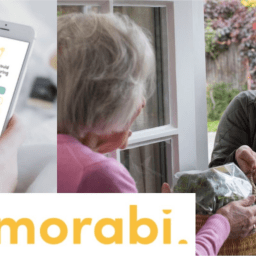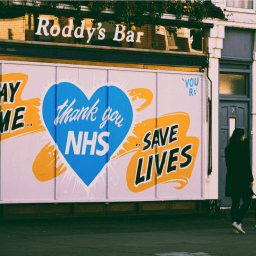
though many companies have paused business, the image they project to the public is under more scrutiny than ever.
CSR is generally a business practice that generally incorporates sustainable development into a company’s business model, aiming to have positive impacts on social, economic and environmental factors. But CSR is also constantly evolving, and the pandemic has shown many that it’s possible to do good closer to home, for communities (literally) on their doorstep.
Furthermore it’s not just the big companies that are chipping in, smaller companies are coming up with creative initiatives to show they care *and* get their name out there. Here’s a round of up some of the companies we have seen contributing, and how yours can too.
Companies caring for communities
Leon, Wasabi, Abokado and Franco Manca, have been delivering free daily hot meals to NHS critical care staff. FeedNHS, set up by comedian Matt Lucas, promised to deliver 5,600 meals a day to five major hospitals belonging to two London healthcare trusts, and have been supported by many fast food and restaurant chains, including these four.
Value fashion giant Primark has donated care packs containing 74,000 products to the new NHS Nightingale Hospital, based in East London, to help staff beat coronavirus.
Breakdown cover and vehicle insurance company The AA have provided NHS workers travelling between home and work with their own direct support phone number, and they can call even if they aren’t a member.
Based in Kent, Knole Park Golf Club are offering a free round of golf or coaching session for NHS workers. Because even superheroes need some down time.
For those that don’t travel by car, Brompton Bicycles who make folding bicycles, is providing 200 bikes to hire, free of charge, to NHS key workers. While 200 isn’t a huge number, it’ll make a massive difference to those who wish to avoid public transport or without access to a car.
And let’s not forget that staff also need extra care and support right now:
Beloved bakery Greggs, despite being allowed to stay open – they provide an essential service – decided to close all stores and from the beginning, saying they would pay staff who have to self-isolate due to vulnerabilities to coronavirus (they are now making use of the government’s furlough scheme). While there have been plans to re-open, concerns that this may cause crowds, which could put customers at risk, have led to a rethink. This careful strategy shows that Greggs are putting the health of their staff and customers first.
Food retailer Co-op took on 5,000 extra store workers to cope with increased demand, offering temporary employment to hospitality workers who have lost their jobs. Though schools have had to close, the 6,500 pupils at 25 Co-op Academy schools who receive free school meals are being given a £20 weekly voucher to ensure they can continue to get a decent meal.
Retail chain Timpson, which provides shoe repair, dry cleaning and key-cutting services, have kept their 5,500 employees on full pay while shops have been closed.
So what can your company do?
Hugg is a fantastic platform that can be used to purchase and send supermarket vouchers to eligible families who may be struggling to put meals on the table. A simple idea, with big impact.
How about encouraging furloughed staff to build on their existing skills? Now is a great time for both professional and self-development. There are many online courses – including digital marketing and data analytics – available through the General Assembly, some are free and others for pretty affordable fee. Jolt specialises in business education, and could supercharge your employees’ motivation and ambitions.
Volunteering is still possible! Let your employees know that Komorabi is launching a new app with hundreds of bite-sized volunteering opportunities at your fingertips, that can be completed from your sofa. Register your interest here ahead of our launch.
Ultimately, the good publicity from these actions is likely to stay in people’s minds long after the crisis dies down. Not only will potential customers remember which companies did good, and which companies did bad, but people looking for work (of which there will be many) will also be more likely to apply. While initially it may be difficult to justify the extra expense for companies who are already struggling, when it comes to business, karma always comes back around.







